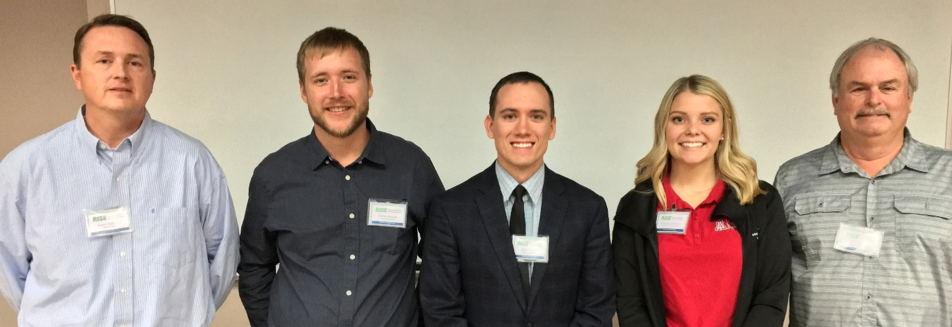16th Annual RISE Symposium includes Student Poster Contest Winners
On Saturday 26 October 2019, 56 people attended the 16th Annual RISE (Research Insights in Semi-Arid Environments) Symposium in the Marley Building on the University of Arizona campus. You can find the program at http://www.tucson.ars.ag.gov/rise/index.htm
The objectives of the symposium are to share recent results of scientific research in semiarid environments, with an emphasis on work conducted at the USDA-ARS Walnut Gulch Experimental Watershed (WGEW) and the University of Arizona Santa Rita Experimental Range (SRER), and to encourage future research and outreach activities.
This year, 10 speakers covered a wide variety of topics, and some included results of work completed and on-going at WGEW or SRER. The topics ranged across micro to regional spatial scales, and from seconds to century temporal scales. Betsy Arnold discuss soil microbial influences on seed germination and success at the micro-scale, while John Humphreys presented regional scale information about the transmission and outbreak of livestock diseases. Enrique Vivoni described carbon, heat and water exchange rates with measurements per second, Mike Duniway described responses of vegetation to alterations of precipitation regimes at the 3-year scale, and Dave Bertelsen described 36 years of vegetation change along the Mount Kimball trail in the Catalinas Mountains at the weekly scale. In short, there was never a dull moment.
These presentations and posters will be archived at http://www.tucson.ars.ag.gov/rise/index.htm, where we also provide presentations and poster from the previous 15 symposia.
The highlight was the 1.5-hour poster session where 9 presenters led a cacophony of discussion in the Marley Building foyer. Through a generous contribution from long-time supporter Mr. Malcolm McGregor, there were monetary awards for the Best Graduate and Undergraduate posters reporting research performed by students working at WGEW or SRER, or using data collected at those facilities.
Best Graduate Poster was shared by Blake Steiner (Unravelling Ecosystem Carbon Uptake into it Component Plant Species Contributions) and Justin Johnson (Brush Management of a Whitethorn Acacis-encroached Grassland Enhances Resource Conserving ?Shrub Islands). Each received a $400 award. The Best Undergraduate Poster award of $300 went to Madeline Melichar (Characterizing UAV Flight Practices for Structure From Motion (SFM) Data Collection of Guayule).
Members of the Tierra Seca Club, which is the student chapter of the Society for Range Management provided coffee, juice, fruit, cheese and baked goodies for attendees before the talks began at 9 am. The Club will use donations for providing these goodies to help cover travel expenses to the national meeting of the Society for Range Management this February 2020 in Denver, Colorado.
Pictured above: Jason Williams (Poster Contest Organizer), Justin Johnson (Co-Best Graduate Student Poster), Blake Steiner (Co-Best Graduate Student Poster), Madeline Melichar (Best Undergraduate Poster) and Steve Archer (Poster Contest Organizer).


